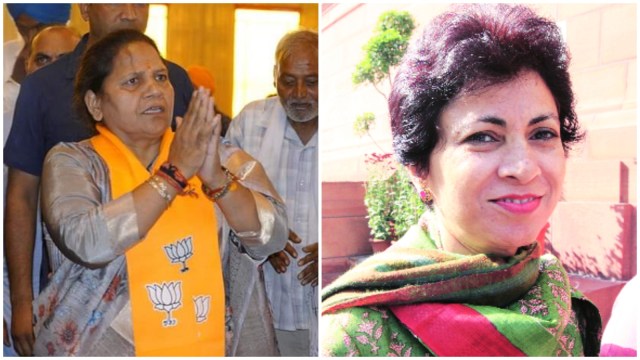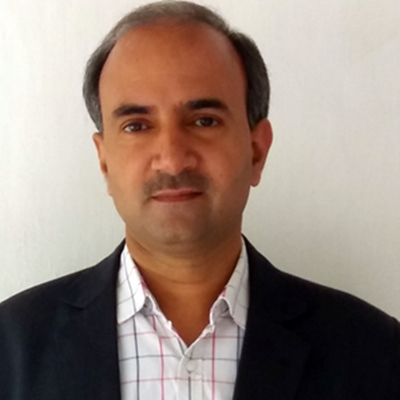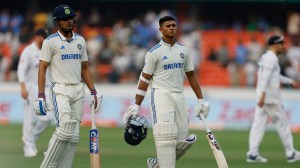Out of 223 candidates in Haryana poll fray, just five women from 4 main parties
Congress general secretary Kumari Selja, who is contesting from Sirsa reserved parliamentary seat, is daughter of a senior leader and former MP late Dalbir Singh. Selja herself is a four-time Lok Sabha MP — two times from Sirsa and two times from Ambala.
 Congress general secretary Kumari Selja (right) and BJP candidate Banto Kataria. (Express Photos)
Congress general secretary Kumari Selja (right) and BJP candidate Banto Kataria. (Express Photos)As many as five of the total 16 women candidates are in the poll fray as the nominees of four mainstream parties — Congress, BJP, JJP and INLD— in Haryana this year. Incidentally, all five are from influential political families. With a total 223 candidates in the poll battle for the 10 Lok Sabha seats of Haryana this time, the participation of women candidates is just nearly seven percent.
Congress general secretary Kumari Selja, who is contesting from Sirsa reserved parliamentary seat, is daughter of a senior leader and former MP late Dalbir Singh. Selja herself is a four-time Lok Sabha MP — two times from Sirsa and two times from Ambala.
This time two women members of Chautala family are also in the poll fray. JJP leader and former deputy Chief Minister Dushyant Chautala’s mother Naina Chautala, a sitting legislator, is the party candidate from Hisar while her sister-in-law Sunaina Chautala is the Indian National Lok Dal candidate from the same seat. INLD women wing’s general secretary Sunaina is the wife of senior party leader Abhay Chautala’s cousin Ravi Chautala. Ravi is the son of former Chief Minister Om Prakash Chautala’s younger brother Pratap Singh Chautala.
From Ambala, the ruling BJP has fielded Banto Kataria, the wife of late former Union minister Rattan Lal Kataria. From the same seat, the JJP has fielded professor Kiran Punia, the daughter-in-law of former state minister and prominent dalit leader late Kripa Ram Punia. Punia told The Indian Express that she gets benefit in the poll campaign because of the name of his father-in-law. “The people from the middle age and the senior citizens say they have heard about his name and social works,” says Punia. On the other hand, the women activists in the region have been insisting that the political parties mainly want to restrain women to rallies only. Stating that the patriarchal mindset demoralises women from entering into active politics, they further insist that only reservation can ensure better representation of women in the state assemblies and Parliament.
They are also not surprised at the selection of candidates from the influential political families as the mainstream political parties keep the winnability factor in mind while nominating their candidates for the elections in the current scenario when there is no reservation for women in the state assemblies and Parliament.
Chairperson of the Chandigarh situated Panjab University’s Department of Education, Professor Satvinderpal Kaur says: “Normally, the women don’t get chances to contest elections because normally the male members of the family take such decisions. For several reasons, she has to be dependent on the male members of the family which influence her own decisions too.” “In the current electoral system which requires a lot of financial resources and influence in the society, the mainstream political parties prefer to field only those women candidates which already have a political backing.”
She said: “This is happening not only in case of parliamentary and assembly polls but even in case of panchayat polls too. The Aam Aadmi Party had fielded a few women candidates from the normal families during the Punjab assembly elections but their number was also very small.”
Shakuntla Jakhar, vice president of All India Democratic Women Association Haryana unit, says: “Despite all progress and all laws meant for gender equality, mostly male members of the family control financial assets in the families. This limits the capability of women in using these resources in case she decides to contest the election against the wishes of their family members.” Notably, the number of women candidates in Haryana this time is higher if the figures of the past 11 parliamentary polls are compared. Earlier, maximum 14 women candidates were in the poll fray in the 2009 election while only three women had contested the 1989 election. The number of women candidates was lesser (11) in Haryana in 2019 Lok Sabha polls than of this year’s 16 contestants. In 2019, former IRS officer Sunita Duggal, fielded by the BJP from Sirsa, was the only female candidate who had won the poll battle. In the 2014 general elections, not even a single woman candidate could manage to win in the state known for its skewed gender ratio and patriarchal set up of the society. In the 2009 Lok Sabha election, former Chief Minister late Bansi Lal’s daughter Shruti Choudhry was elected from Bhiwani-Mahendragarh as a Congress candidate. She was a strong contender for the Congress ticket this time too but the grand old party preferred to field a sitting MLA Rao Dan Singh, a loyalist of former Chief Minister Bhupinder Singh Hooda, for the poll battle.
Kailasho Saini, who recently joined the Congress, was elected MP from the Kurukshetra Lok Sabha seat in 1998 and 1999 on the tickets of the Haryana Lok Dal (Rashtriya) and the Indian National Lok Dal, respectively. The INLD was earlier known as the Haryana Lok Dal (Rashtriya). Dr Sudha Yadav of BJP had won the Mahendragarh seat in 1999. Chandrawati of Bhartiya Lok Dal was first woman from Haryana who had entered the Lok Sabha when she had won Bhiwani seat in 1977.













